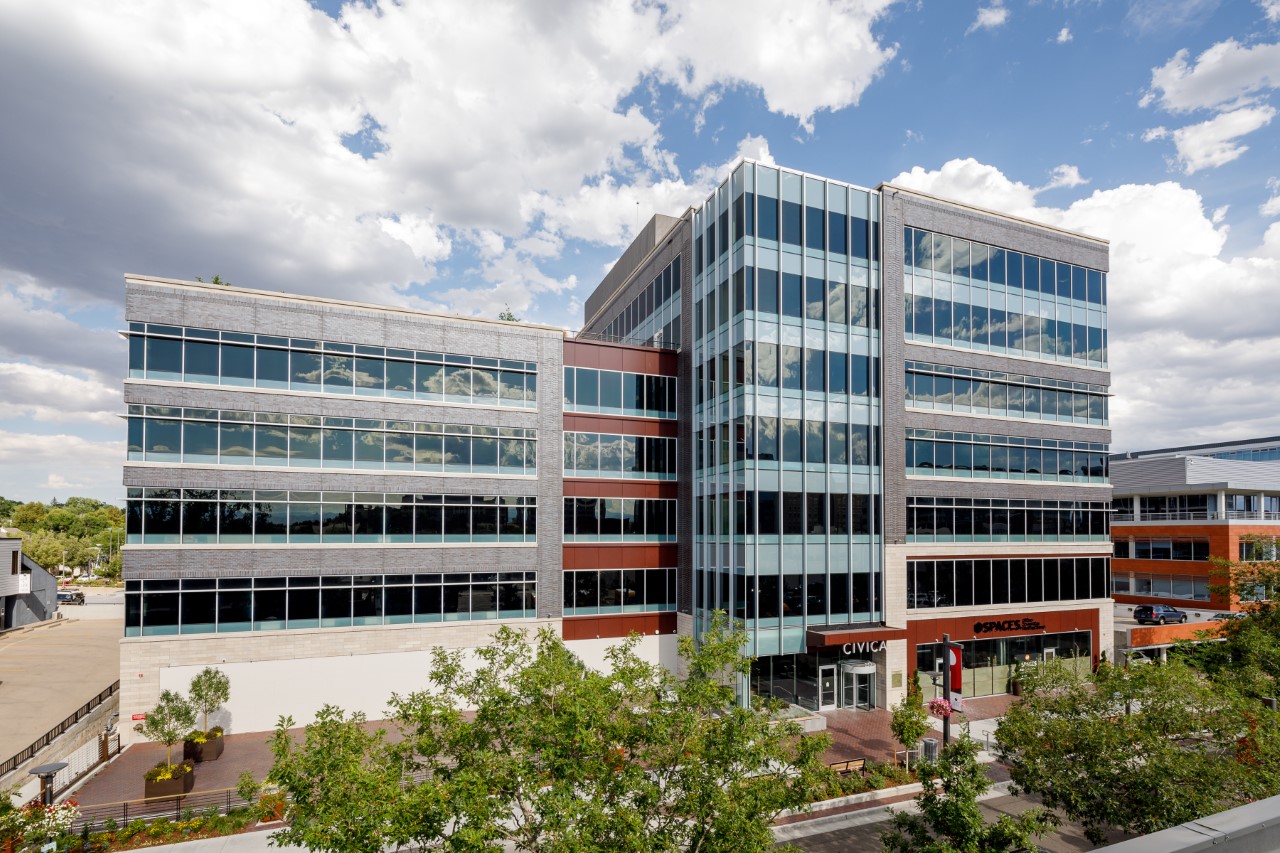By Marisa Mendenhall, View, Inc.

With their first office development in Denver, Schnitzer West set out to develop a best-in-class property that reflected the healthy and active lifestyles of the people who live there. They designed Civica Cherry Creek to include a rooftop terrace, bike storage, and floor-to-ceiling smart windows from View, Inc. The windows, which adjust their tint automatically based on environmental conditions, provide tenants of the seven-story boutique office building with panoramic views of the Rockies while keeping the building cool and comfortable – no blinds required.
Schnitzer West’s decision to choose View may turn out to be a watershed moment for the Denver real estate industry.
Throughout the United States, the Covid-19 pandemic upended the real estate market, and Denver was no exception. This summer, the city’s office vacancy rate hit its highest level in more than a decade.
But according to the real estate services firm CBRE, the Denver market is warming back up. New tenants signed leases for more than 1 million square feet of office space in the second quarter of 2021. Twenty new properties totaling over 3.3 million square feet are about to hit the market. And the list of active tenants — companies poking around but not yet ready to sign a lease — is at the highest rate in the country. In other words, it’s a tenant’s market and Civica Cherry Creek shows that to attract tenants, building developers need to design offices with the needs and desires of people in mind.
So, what do tenants want? During a survey of more than 1,600 employees across the United States, a majority of respondents said that, more than any other workplace amenity, they want a healthy environment — including increased access to daylight and views of the outdoors. In the wake of the Covid-19 pandemic, this is no longer a “nice-to-have” amenity. It’s a necessity.
Scientists have known for decades that the amount of natural light we receive is a critical determinant of health and wellness. Studies show that increased daylight and views of the outdoors can regulate circadian rhythm, lower blood pressure, and even positively impact our ability to learn.
This is one reason why modern buildings tend to utilize as much glass as possible. But not all glass is created equal. Traditional glass windows amplify the sun’s energy like a magnifying glass, increasing glare and heat from the rays of the sun. Building occupants can only spend so much time near them before they start to feel uncomfortable — common side effects include headaches, drowsiness, and eyestrain.
Thankfully for building developers in Denver — where the sun shines more than 300 days a year — traditional glass windows are no longer the only option.
View, Inc., the leader in smart building technologies, has developed smart windows that automatically adjust in response to environmental conditions. Based on a cutting-edge electrochromic coating and driven by machine-learning software, View Smart Windows block heat and glare, providing continuous access to daylight and views of the outdoors without the need for blinds
In one recent study, scientists found that people working in an office with smart glass experienced half as many headaches and slept 37 minutes longer each night compared to when they worked in a similar office with traditional windows.
Designing buildings with occupant health and wellbeing in mind can also lead to increased lease rates. One study by researchers at the MIT Center for Real Estate and Sustainable Design found that corporate tenants are willing to pay 5 percent more in rent for offices with abundant access to natural light.
View Smart Windows helped Civica Cherry Creek achieve the highest weighted average lease rate in the Denver market. Schnitzer recently sold the office building for $108 million, which also represented the highest per-square-foot price in Denver history at $930 per square foot.
After the success of Civica Cherry Creek, Schnitzer West announced it will install View Smart Windows at its second Denver property, The Current, River North. Currently under construction and set to open to tenants in 2023, the 238,000-square-foot, Class-A office building was designed to promote tenant health, wellbeing, and productivity.
“We decided that we wanted to build the world’s healthiest office building, and there’s no way we could do that without View Smart Windows,” said Kyle Flippen, development manager for the Denver market at Schnitzer West. “In the conversations I’ve had with tenants at Civica Cherry Creek, the common theme is that our building is able to preserve views and maximize natural sunlight which results in a much happier and productive employee. You can’t go back to using traditional glass after hearing that.”
View is the leader in smart building technologies that transform buildings to improve human health and experience, reduce energy consumption and carbon emissions, and generate additional revenue for building owners. View Smart Windows use artificial intelligence to automatically tint in response to the sun, eliminating the need for blinds and increasing access to natural light. Every View installation includes a cloud-connected smart building platform that can easily be extended to improve indoor cellular coverage, enhance building security and reimagine the occupant experience. View is installed and designed into 92 million square feet of buildings including offices, hospitals, airports, educational facilities, hotels and multi-family residences.









